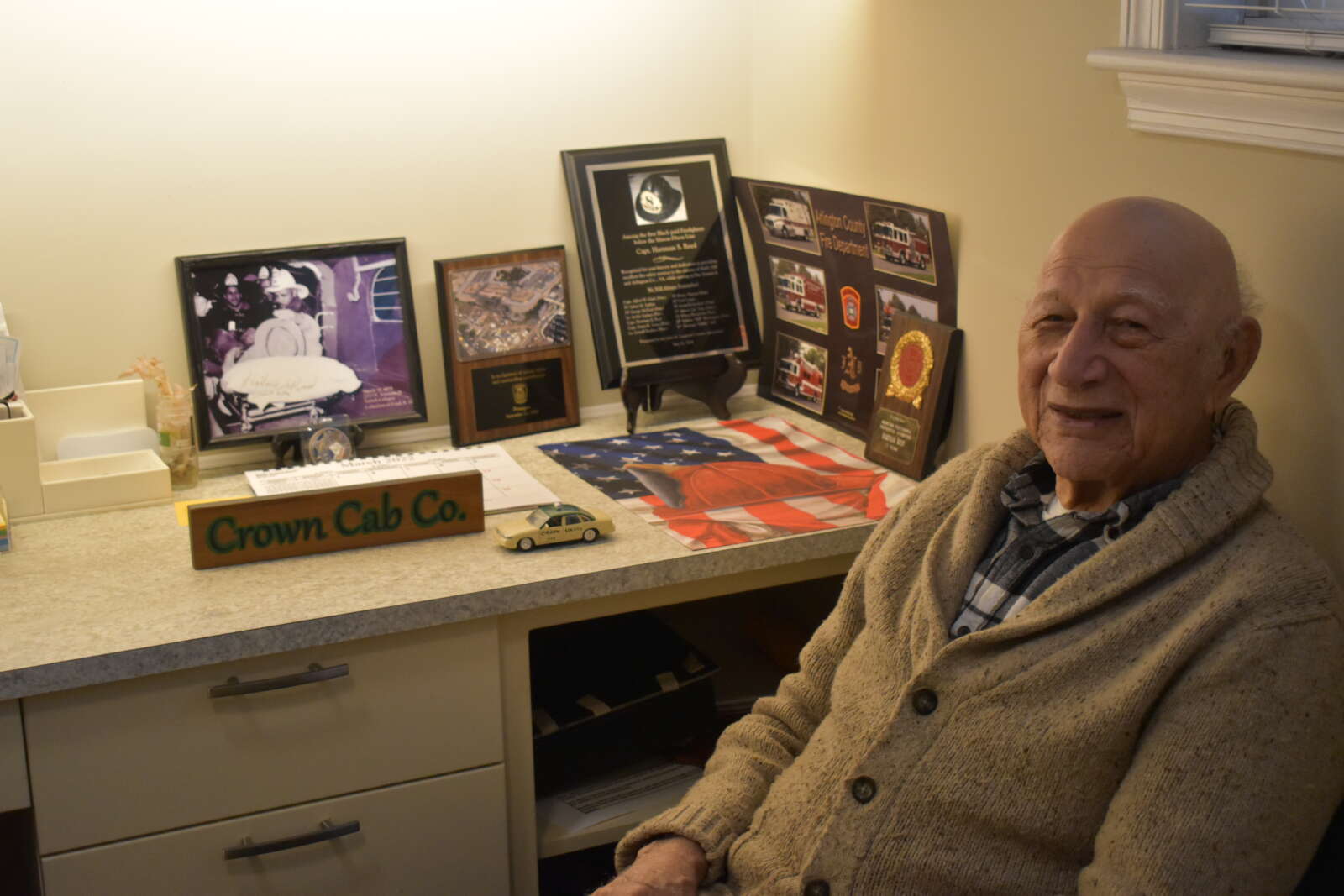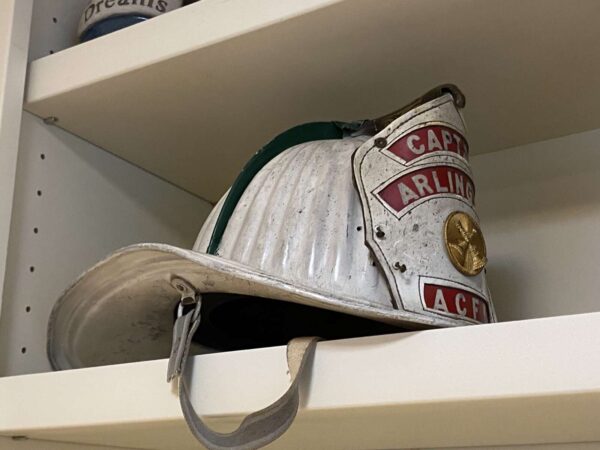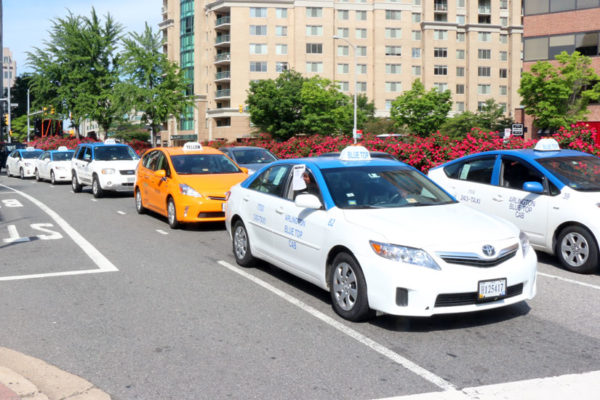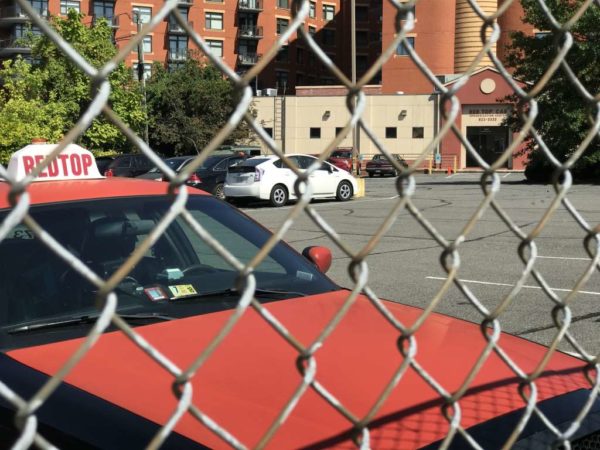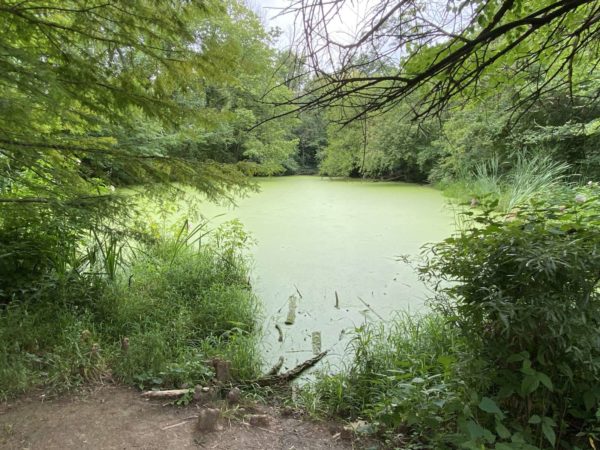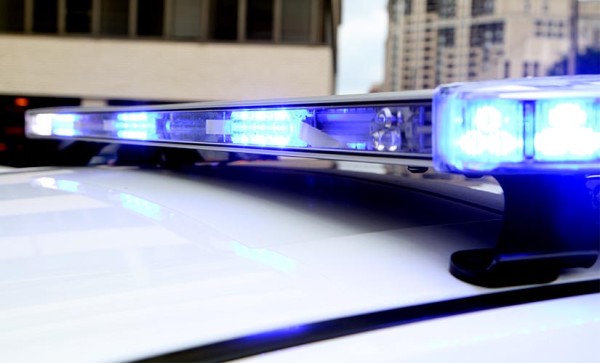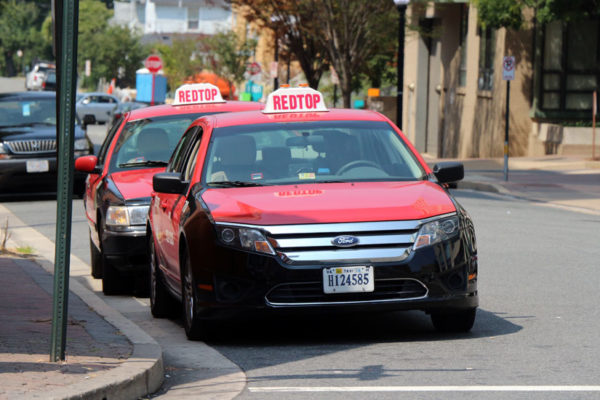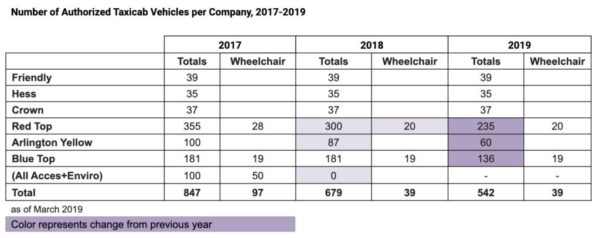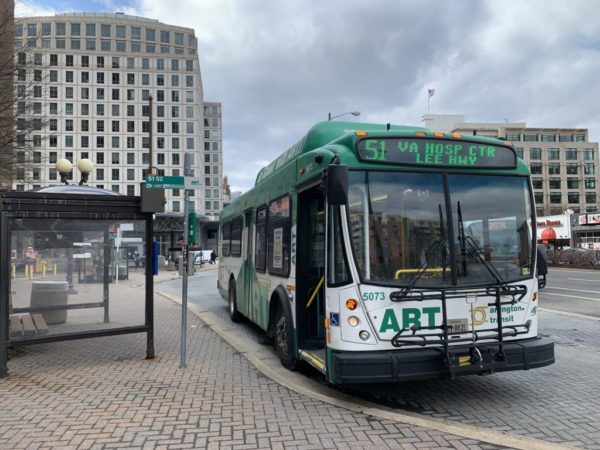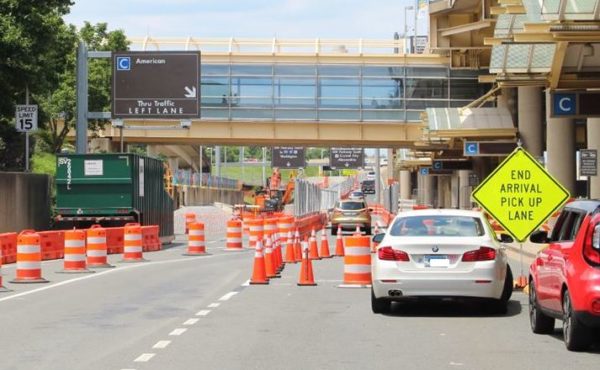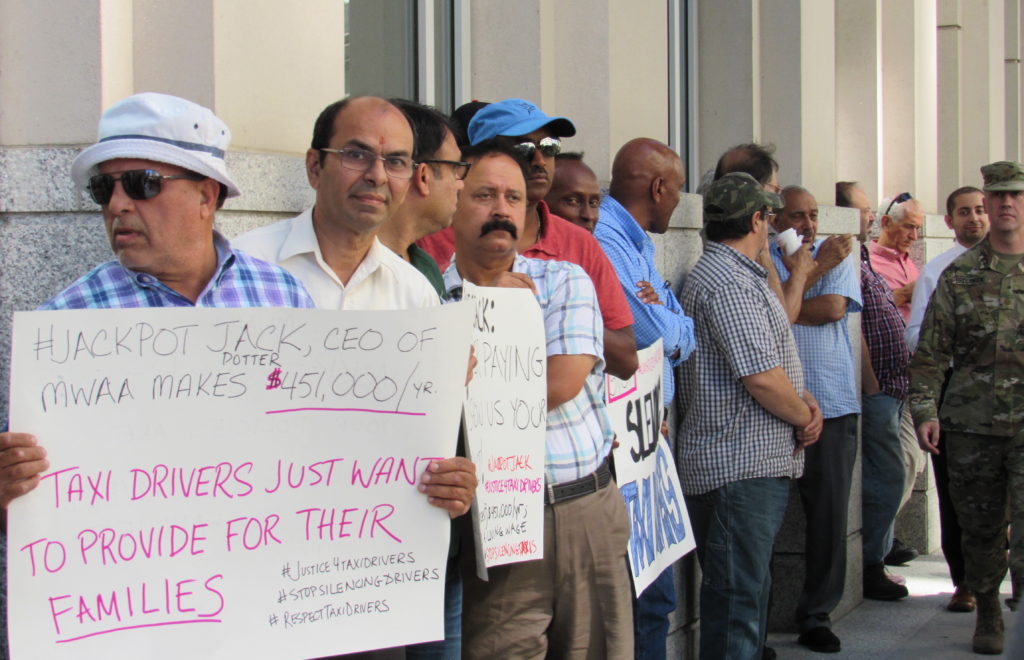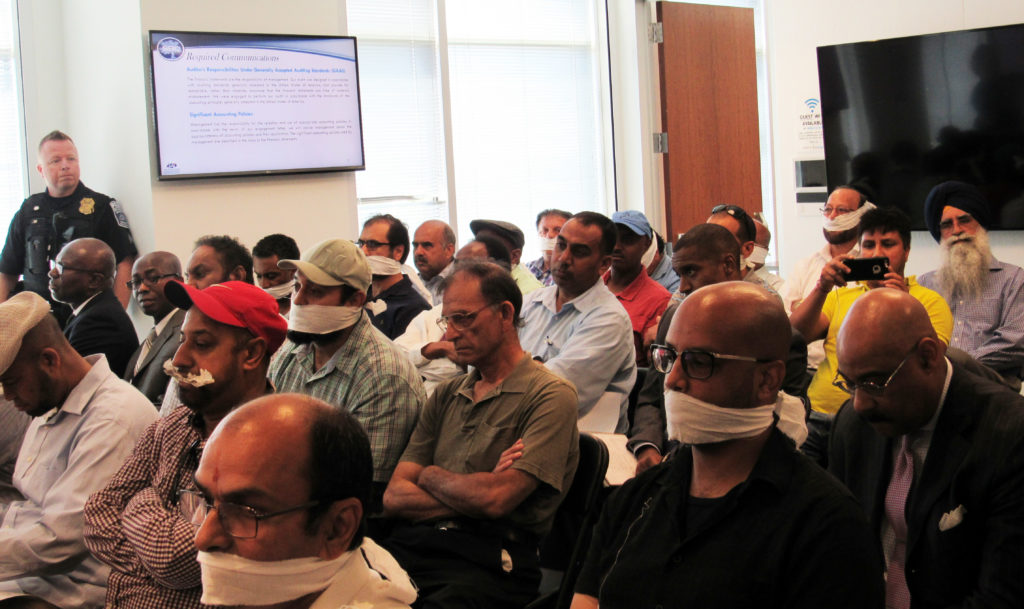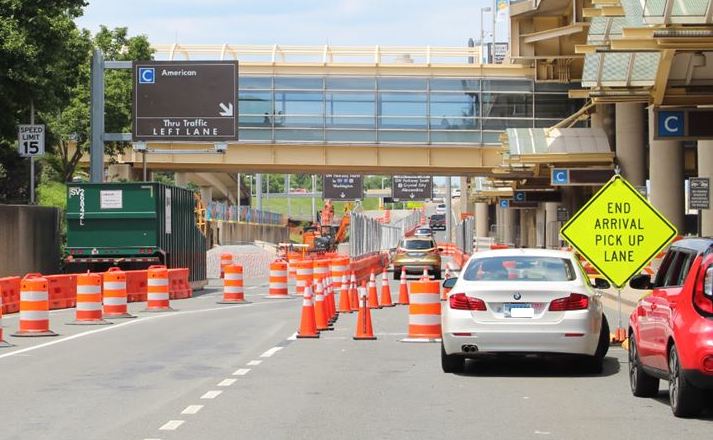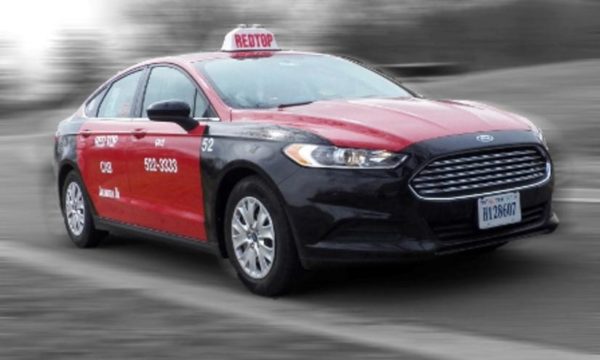
All six taxi companies authorized to operate in Arlington County are asking for rate increases.
The companies say this would help offset rising business costs — including fuel and insurance expenses — and keep them competitive with rideshare operators. Arlington, which regulates taxis (while rideshare drivers are regulated by the state) last raised rates in 2016, per a county report.
The Arlington County Board voted over the weekend to a hold a public hearing on whether to increase the rates on Saturday, May 13. If approved next month, the higher rates would go into effect on July 1.
Riders could see increases of $1.70 to $6.50 per trip, the county report said. Specifically, the county proposes increasing the initial trip cost by 50 cents to $3.50. The current rate for every 1/6th of a mile and for every minute drivers are kept waiting, $.36, would increase to $.40.
“The increase is lower than the overall rise in inflation, but the taxicab industry feels that keeping prices competitive is very important,” per a county report.
Arlington’s Transportation Commission agrees.
“Given the significant increases in costs for drivers since the last fare increase, the support of the industry, and the report from the companies that they have done what they can to support their drivers by significantly lowering stand dues, the Commission is supportive of the fare increase,” Chair Chris Slatt wrote to the County Board.
“The Commission believes that the taxi industry in Arlington plays a valuable role as a reliable mobility operator with transparent pricing and a lower technological barrier to entry than Transportation Network Companies,” he continued.
Six authorized operators owned a total of 477 taxis in 2022, of which 8% were wheelchair-accessible, per the most recent available data. Friendly, Red Top, Arlington Yellow and Blue Top, which provide dispatch service, own 405 taxicabs or 85% of the entire fleet. Hess and Crown operate mainly at airports and taxi stands.
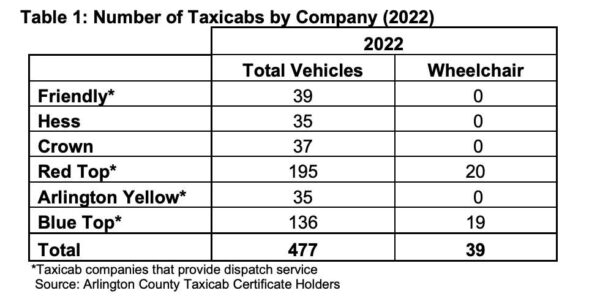
The number of cabs operating in Arlington has declined from a peak of 847 in 2017 to 477 vehicles in 2022, per a county memo. Wheelchair-accessible vehicles decreased from 97 in 2017 to 39 in 2022.
Taxi operations — already facing stiff competition from app-based ride options like Uber — were hit hard by the pandemic, with the number of dispatches and airport trips plummeting more than 60% between 2019 and 2021.

Rides from Reagan National Airport and Dulles International Airport recovered slightly from 2020 to 2021 after a precipitous decline, according to county stats.

Data from 2022 and 2023 will be collected next year, according to the county.
“We track ridership data for the Certificate Determination Report analysis on a biennial basis,” says Dept. of Environmental Services spokeswoman Katie O’Brien.
If the rate changes go through, Arlington’s initial charge for a trip would become on-par with neighboring jurisdictions, but the cost for a trip — particularly a 10 or 25-mile one — would be higher, according to an analysis conducted by staff.


